Efficient Hygiene Services | HVAC Cleaning
Your Trusted Experts in HVAC Cleaning & Indoor Air Quality
Why Business & Government Choose Efficient Hygiene Services
100% Customer Satisfaction
All Works Meet Australian Standards
Heavy Investment In Premium Equipment
Real Results, Proven Success
10+ Years of Experience
Meticulous Attention To Detail
At Efficient Hygiene Services, we specialise in delivering premium HVAC hygiene solutions across South‐East Queensland and Sydney. From targeted air‐conditioner cleaning and ductwork remediation to indoor air quality testing and mould control, our team brings more than a decade of experience to every job.
We are trusted by business owners and government, facility managers, restaurants, retail, offices, factories and more. We combine industry-leading training and equipment with a practical, no-nonsense approach. We ensure your systems run cleaner, safer and more efficiently — helping you protect your indoor environment, reduce energy costs and maintain compliance with Australian standards.
Whether you’re looking to book a full HVAC clean, conduct an air-quality inspection or remedy mould or exhaust systems, our friendly team is ready to help — call 1300 222 357 or request a free quote online to get started today.

Our Services
Professional air conditioner cleaning is essential at all business premises. At EHS, we will clean out all the filters and ducts at your location, helping you and your staff stay comfortable all year round.
Our experienced team can efficiently remove and clean all components within split system or cassette air conditioning systems. We remove all contaminants to help improve operating efficiency.
Did you know most toilet exhaust systems should be cleaned at least once every 12 months? This can help remove accumulated dust, bad odours and stale air.
Efficient Hygiene Services are your specialist kitchen exhaust cleaners in South East Queensland. We can efficiently remove all traces of grease, fat and oil in your system.
Neglecting professional air duct cleaning can significantly affect the operational efficiency of your workplace, and present risks to occupant health. Contact our team today for peace of mind.
Dust, dirt, pollen, moisture and other harmful contaminants can build up on internal and external cooling coil surfaces. We use a variety of methods to remove all types of debris found.
Protect the health and safety of your staff and customers by booking an indoor air quality test. At Efficient Hygiene Services, our team can perform standard, microbiological and advanced tests as required to give you clear insights into potential risks and actionable steps for improvement.
Our mould remediation service identifies, treats and prevents mould at the source. We remove contamination, restore affected areas, and implement long-term moisture control solutions to protect your property, improve indoor air quality, and create a healthier, safer environment.
We provide fast, effective mould removal using industry-approved methods and advanced equipment. We eliminate visible growth, treat hidden spores, and restore surfaces to safe conditions while reducing moisture to help prevent future outbreaks.
Our corrosion protection safeguards metal assets against rust, deterioration and environmental damage. We apply high-performance coatings, surface treatments and preventative maintenance solutions that extend equipment life, reduce downtime, and improve long-term structural integrity across commercial, industrial and residential applications.
We deliver professional UV light disinfection to eliminate bacteria, viruses and mould without chemicals. Our high-efficiency UV-C systems sterilise air and surfaces, providing rapid, reliable pathogen control for workplaces, healthcare settings, commercial buildings and sensitive indoor environments requiring superior hygiene.
We offer a wide range of specialised equipment for hire, including air scrubbers, dehumidifiers, HEPA filtration units and drying systems. Our hire service provides reliable, cost-effective solutions for restoration, construction and commercial projects needing professional-grade environmental control.

Complete Guide to Professional HVAC Cleaning Services
As a business owner or facilities manager, you rely on professional HVAC cleaning to keep building’s heating, ventilation, and air conditioning systems running safely, efficiently, and hygienically. Over time, dust, dirt, mould, and microbial contaminants build up across ductwork and system components, affecting airflow and indoor air quality.
That’s why customers trust Efficient Hygiene Services—we clean every part of the HVAC system, from ducts and filters to coils, blower assemblies, drain pans, and plenums, ensuring cleaner air and better performance.
Clean HVAC systems help you improve indoor air quality, reduce energy consumption, and support the health of our staff, customers, and building occupants. Efficient Hygiene Services is Australian-owned and operates nationally, providing dependable HVAC cleaning solutions for residential, commercial, government and industrial properties.
What This Guide Covers
In this guide, we walk through the complete HVAC cleaning process used by
Efficient Hygiene Services, including the tools, inspection procedures, and verification methods that ensure a fully restored and hygienic system.
We also explain what is included in a professional clean—such as ductwork inspection, mechanical agitation, HEPA vacuum extraction, and sanitisation—and what falls outside the scope, like major structural repairs or full HVAC replacement. You’ll also find insights into maintaining HVAC hygiene and complying with standards including AS/NZS 3666.
Who This Is For
This guide is ideal for facility managers, business owners, commercial tenants, government departments, landlords, and homeowners who are dealing with poor air quality, rising power bills, or concerns about hidden contamination.
If your building feels stuffy, your filters clog quickly, or occupants report allergies or respiratory symptoms, understanding when to schedule HVAC cleaning becomes essential.
Why This Matters
Blocked HVAC systems can slash heating and cooling efficiency by more than 20%, driving up your energy bills and putting unnecessary strain on system components.
An average building collects dozens of kilograms of dust inside ductwork every year—an ideal breeding ground for mould spores, bacteria, allergens, and odours. Clean HVAC systems mean better airflow, healthier indoor environments, and more efficient temperature control.
What You'll Learn
- How professional HVAC cleaning restores performance and protects your system
- When different environments require scheduled cleaning
- How Efficient Hygiene Services’ cleaning process works
- How clean ducts improve energy efficiency and indoor comfort
- Why ongoing hygiene and preventive maintenance matter
All services are coordinated through Efficient Hygiene Services’ head office, ensuring consistent delivery, professional support, and local expertise.

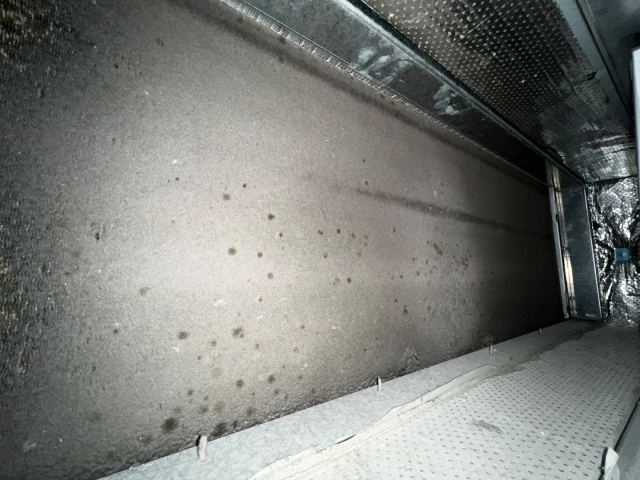
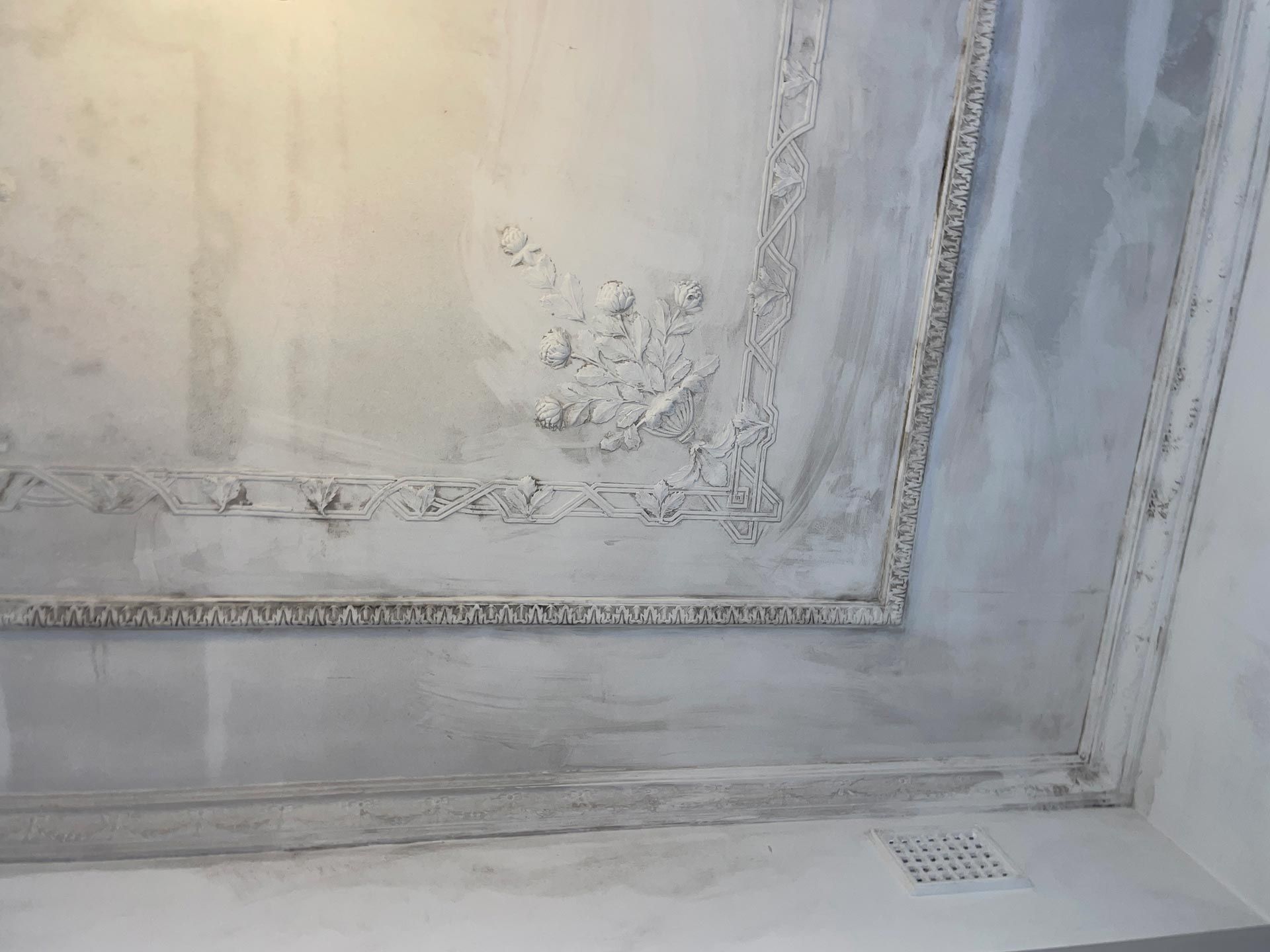
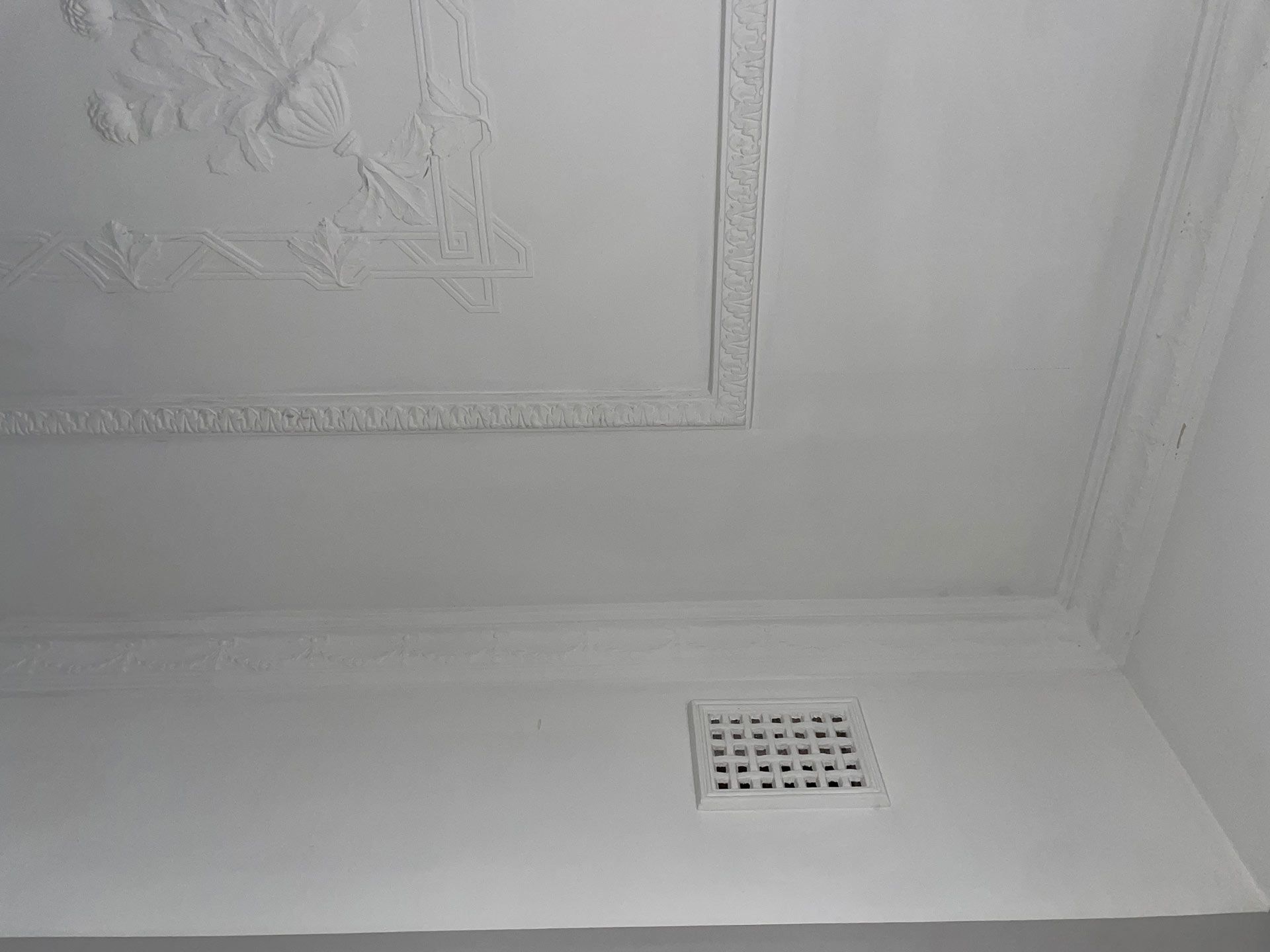
Understanding HVAC Cleaning Fundamentals
At Efficient Hygiene Services, HVAC cleaning means the thorough, methodical removal of dust, allergens, microbial growth, and other contaminants from every part of a heating, ventilation, and air conditioning system.
Modern buildings circulate massive volumes of air daily—bringing with it dust, dander, moisture, and pollutants. Over time, these contaminants accumulate inside ductwork and system components. Without proper cleaning, this buildup reduces efficiency, restricts airflow, and compromises indoor air quality.
Regular HVAC cleaning is essential for airtight commercial buildings, offices, apartments, and homes where pollutants can linger and recirculate. Properly cleaned ducts help maintain system performance, prevent breakdowns, and ensure cleaner, fresher air throughout the entire property.
Components We Clean
Efficient Hygiene Services provides a full-system clean, addressing:
- Supply and return air ducts
- Vent covers, registers, and grilles
- Air handling units (AHUs)
- Blower motors and fan assemblies
- Evaporator and condenser coils
- Heat exchangers
- Drain pans and condensate lines
- Ceiling cavities and air plenums
Every component affects overall system performance. A blockage in one section impacts airflow across the entire HVAC network. Proper cleaning ensures all parts work together efficiently, delivering consistent temperature control and better energy performance.
Contaminants We Remove
Efficient Hygiene Services removes:
- Dust and debris
- Airborne bacteria and viral contaminants
- Mould and microbial growth
- Pet dander and allergens
- Moisture-related organic buildup
These contaminants restrict airflow, increase equipment strain, and undermine indoor air quality. Removing them restores system hygiene and helps deliver clean, healthy air across every room, office, and workspace.
With these fundamentals in mind, it becomes clear why specialised methods and professional-grade equipment are essential for deep HVAC cleaning.
Importance of Air Quality
Indoor air quality directly affects the comfort, health, and well-being of everyone in the building. Poor air quality can exacerbate allergies, asthma, respiratory irritation, and even fatigue or headaches. When contaminants accumulate inside ductwork, they circulate through your property, carrying mould spores, bacteria, and dust.
Professional HVAC cleaning dramatically improves indoor air quality by removing the contaminants that standard household cleaning simply can’t reach. This is especially important in homes with pets or children, and workplaces that house sensitive equipment or vulnerable occupants.
Clean ducts equal cleaner air—and that means healthier people, better comfort levels, and a more productive indoor environment.
Professional HVAC Cleaning Methods
Efficient Hygiene Services uses a structured, end-to-end process that combines modern cleaning equipment with industry-recognised procedures. Their approach ensures deep cleaning, verified hygiene, and minimal disruption to normal operations.
Our Inspection Process
Every job begins with a detailed inspection. Technicians use video scopes, high-powered lights, and photographic documentation to assess contamination levels throughout the ductwork. Before-and-after images give clear transparency and help identify problem areas like mould patches, dust-heavy sections, or moisture damage.

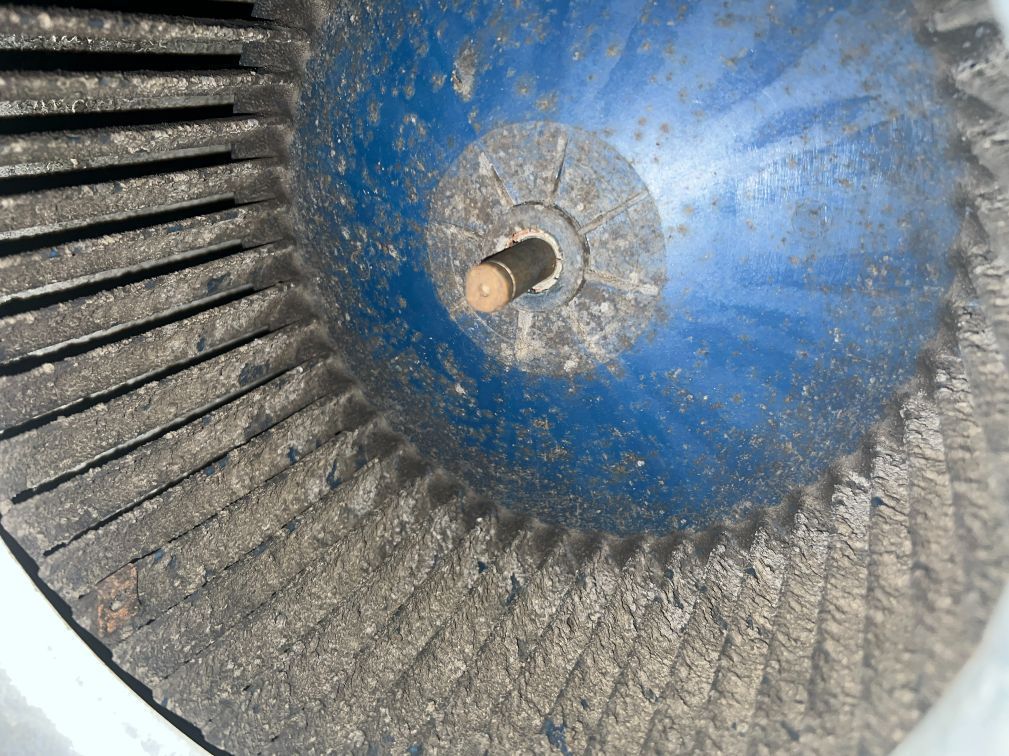

Advanced Cleaning Equipment
Efficient Hygiene Services uses:
- Industrial HEPA vacuums
- Negative air machines to maintain controlled airflow
- Rotary brush systems for hard-to-reach areas
- Compressed air whips and agitation tools
This equipment removes deep contamination that domestic vacuums can’t reach. HEPA filtration traps particles smaller than 0.3 microns, preventing redistributed dust from re-entering your indoor air.
Sanitisation and Treatment
After mechanical cleaning, the team applies approved anti-microbial treatments to suppress mould and bacteria. UV-C disinfection is used in sensitive environments needing additional hygiene. Post-clean verification includes air quality testing, photographic evidence, and compliance checks to ensure the HVAC system meets industry standards.
Key Points
- Professional-grade tools remove deep contamination
- Full inspection prevents missed areas
- Verification testing confirms successful results
Step-by-Step HVAC Cleaning Service
Efficient Hygiene Services follows a proven methodology that ensures consistent outcomes while minimising disruption to daily operations.
Ready
Initial system inspection, documentation, and safe shutdown procedures. Technicians establish containment barriers to protect work areas and maintain indoor cleanliness.
Open
Vents, registers, and system access points are opened. Negative air pressure is established to ensure contaminants are captured and not released into occupied spaces.
Scrub
Mechanical agitation tools dislodge dust and debris while HEPA vacuums extract contaminants from every surface inside the duct system.
Ensure
Final sanitisation treatments are applied, followed by air quality verification and photographic evidence of cleanliness.
Comparison: Basic Cleaning vs Professional Service
| Feature | Basic Cleaning | Professional Services |
|---|---|---|
| Equipment | Household vacuum | Industrial HEPA systems |
| Coverage | Only visible areas | Full-system access |
| Containment Removal | Surface dust | Deep removal of mould, bacteria, debris |
| Safety | Limited control | Containment and negative air systems |
| Verification | Visual only | Air quality testing + documentation |
| Guarantee | None | Service warranty provided |
With a systematic approach in place, we can address common concerns around frequency, disruption, and quality.
Reducing Energy Costs
Clogged ducts force HVAC systems to work harder, which increases electricity usage and shortens equipment life. Clean airways allow airflow to move freely, helping your heating and cooling systems operate efficiently.
Professional HVAC cleaning reduces strain on motors, improves temperature consistency, and lowers your energy bills. Over time, these savings offset the cost of cleaning and reduce the likelihood of expensive system repairs or replacement.
The Role of Filter Replacement
Filters are the first line of defence against airborne contaminants. When they clog, airflow drops, energy use increases, and pollutants bypass filtration. Regular filter replacement helps maintain system performance, improves indoor air quality, and prevents dust from re-entering the duct system.
Efficient Hygiene Services can recommend and supply the correct filter type, ensuring maximum filtration and compatibility with your HVAC system.
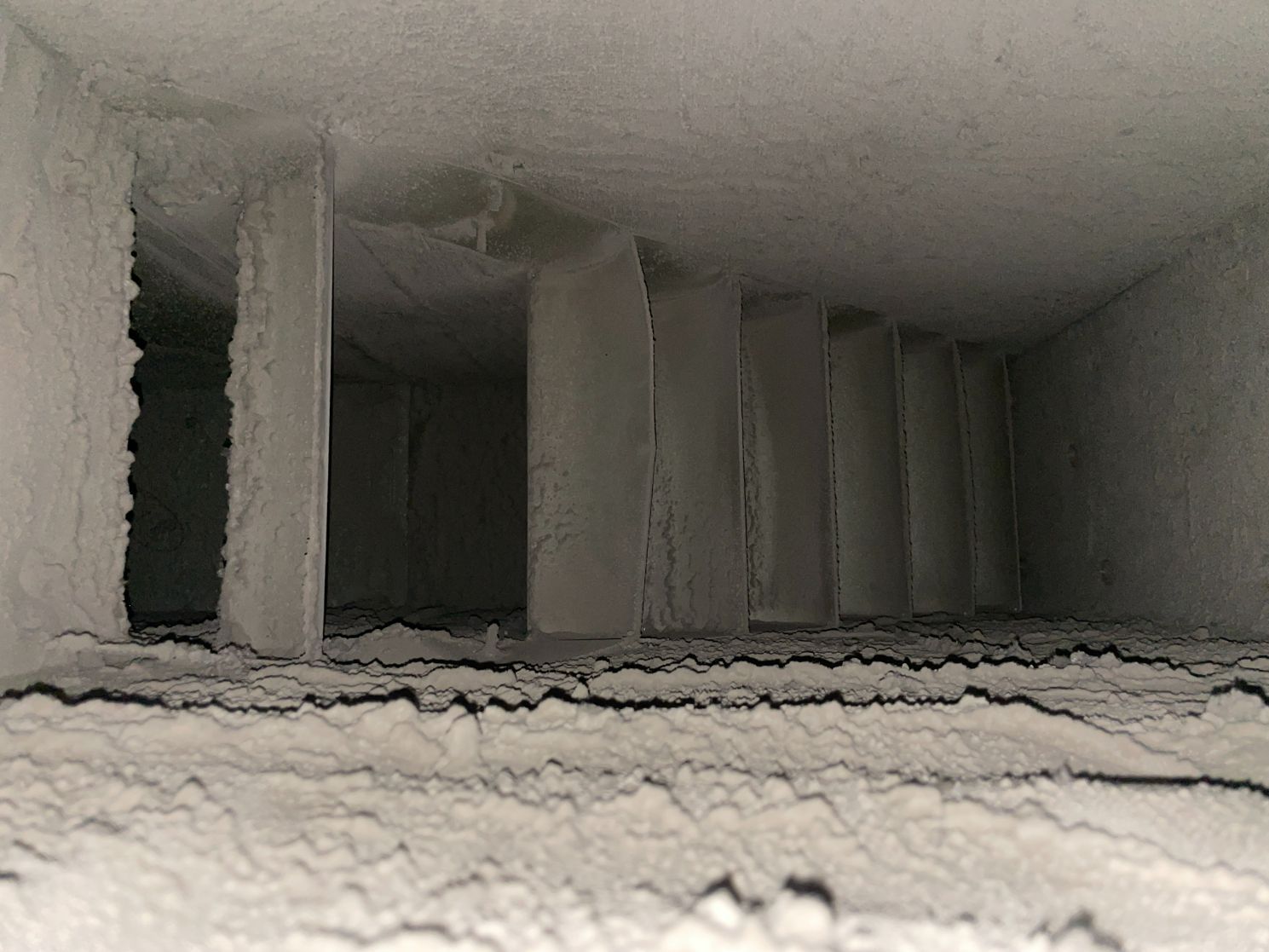
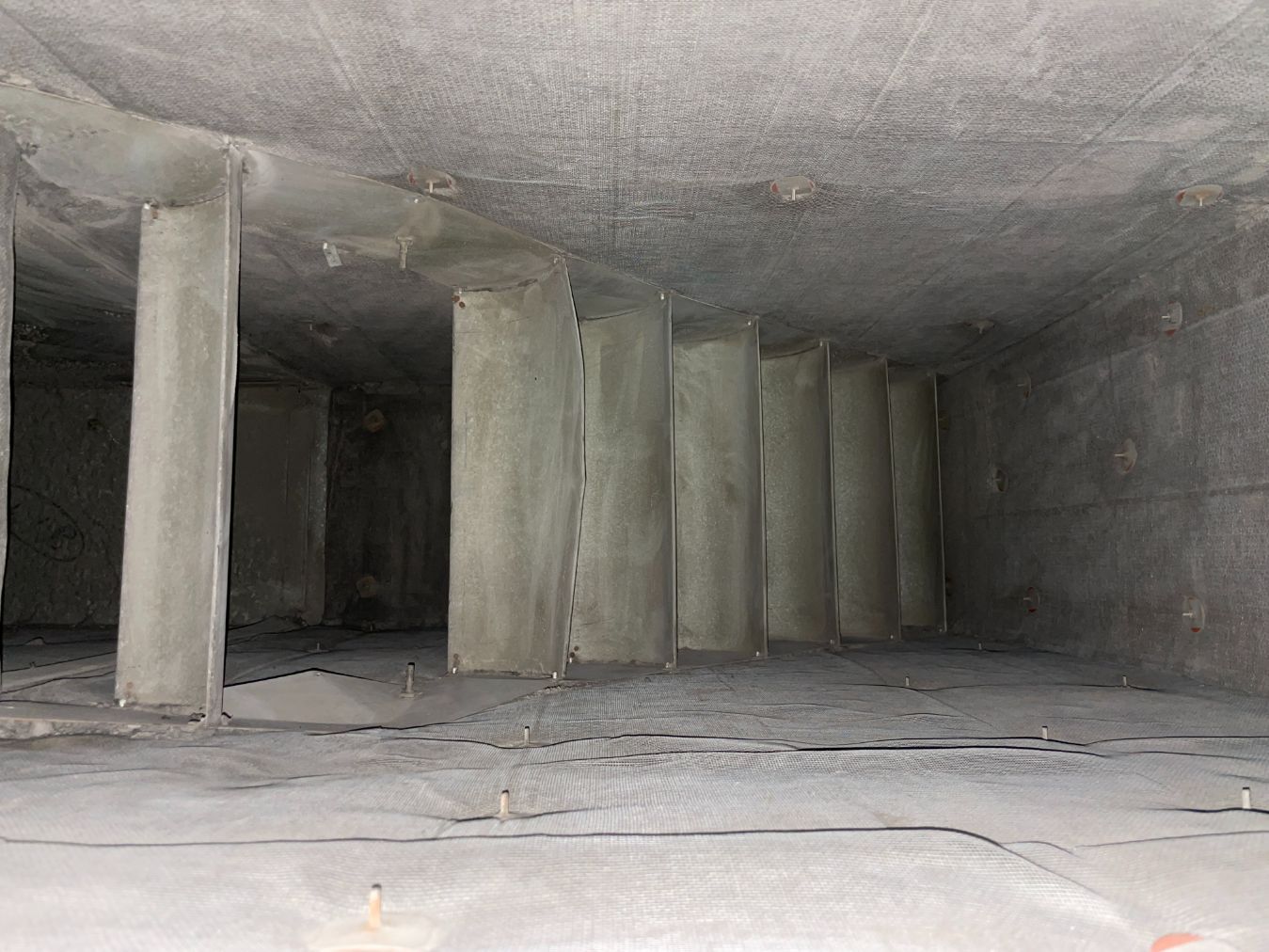

Common Challenges and Solutions
When Should I Clean My HVAC System?
Commercial sites generally require cleaning every 2–3 years; homes every 3–5 years. Buildings with pets, high foot traffic, or allergy-sensitive occupants benefit from more frequent service.
Will Cleaning Disrupt My Business?
Efficient Hygiene Services schedules work during off-hours and uses containment systems to minimise disruption.
How Do I Know the Job Was Done Properly?
Every service includes photographic evidence, air quality data, and certification of cleanliness.
Transition
With these concerns addressed, keeping your system in top condition is simply a matter of ongoing maintenance.
Signs That Your Commercial Air Conditioning Needs Cleaning
Depending on the internal environment, we recommend that commercial systems are cleaned every three to six months. If you notice any of the following signs between cleans, or if it’s been a while since you scheduled a clean, prompt action is probably needed.
- System failing to maintain the desired temperature, or taking a long time to reach the required temperature.
- Signs of poor air quality, including a musty smell and increasing dust levels.
- A system that operates intermittently.
- An A/C unit that emits odd noises or sounds as if it’s straining.
HVAC Cleaning and Maintenance Tips
- Schedule regular duct cleaning to remove buildup and maintain airflow.
- Replace filters frequently to maintain healthy indoor air and reduce system strain.
- Inspect vents and ducts periodically for dust, leaks, or odours.
- Keep the HVAC area clear from clutter, dust, and stored items.
- Book annual professional maintenance to extend system life and prevent faults.
These basic steps help you maintain consistent comfort, avoid unexpected breakdowns, and keep energy costs low.
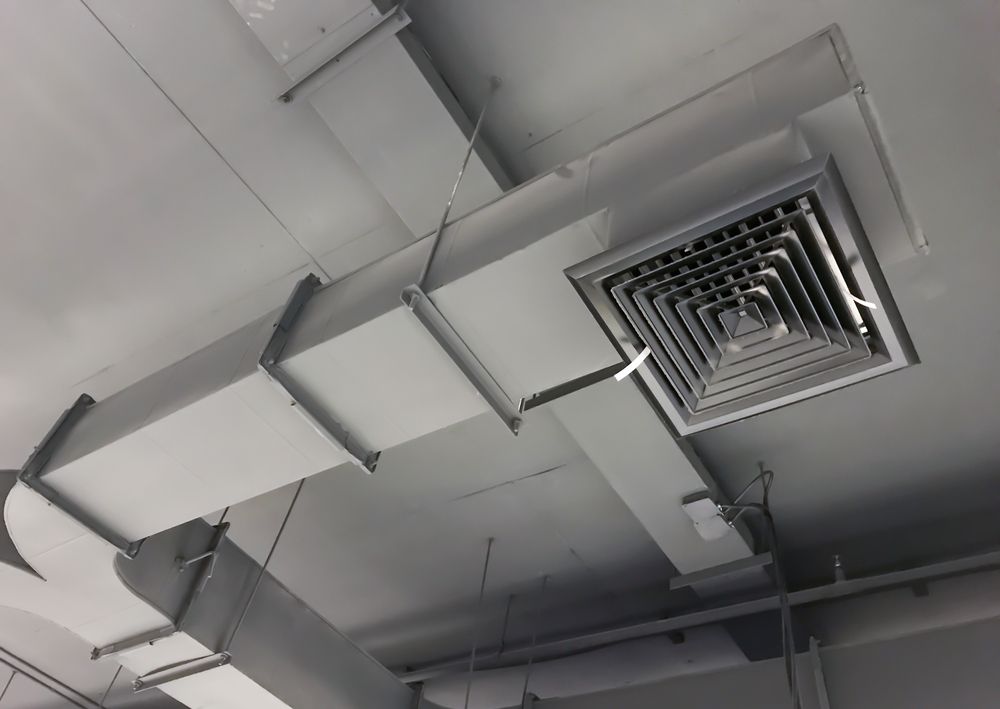
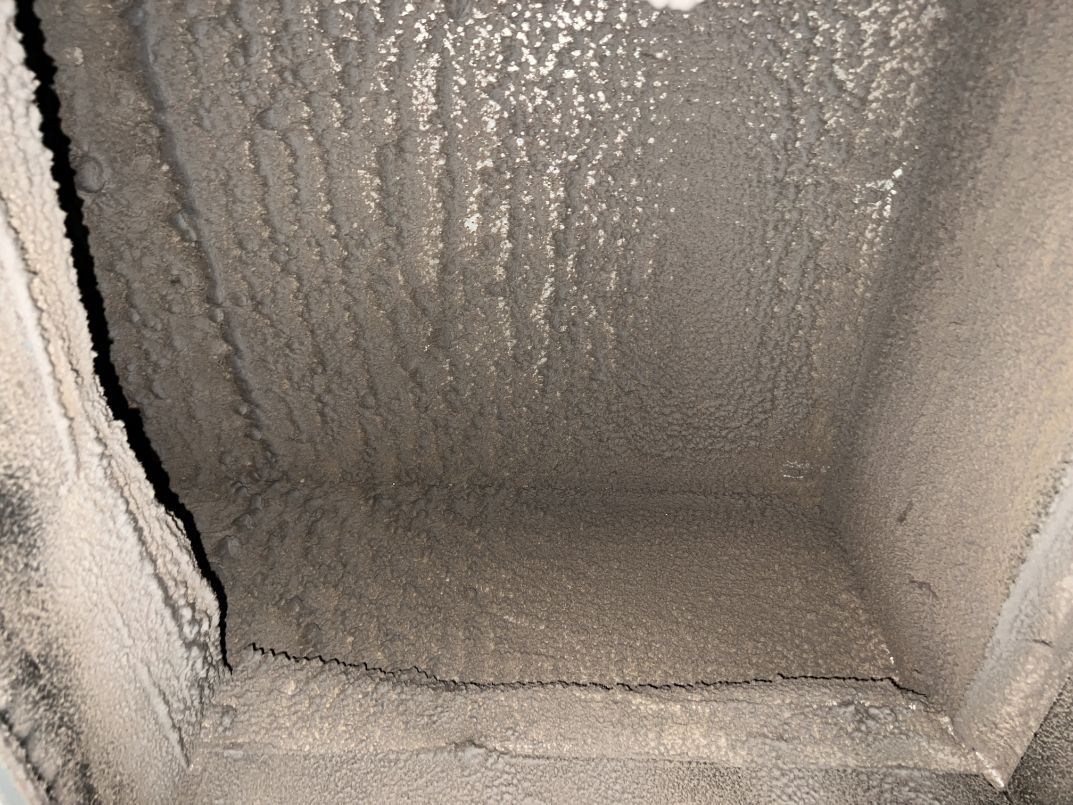
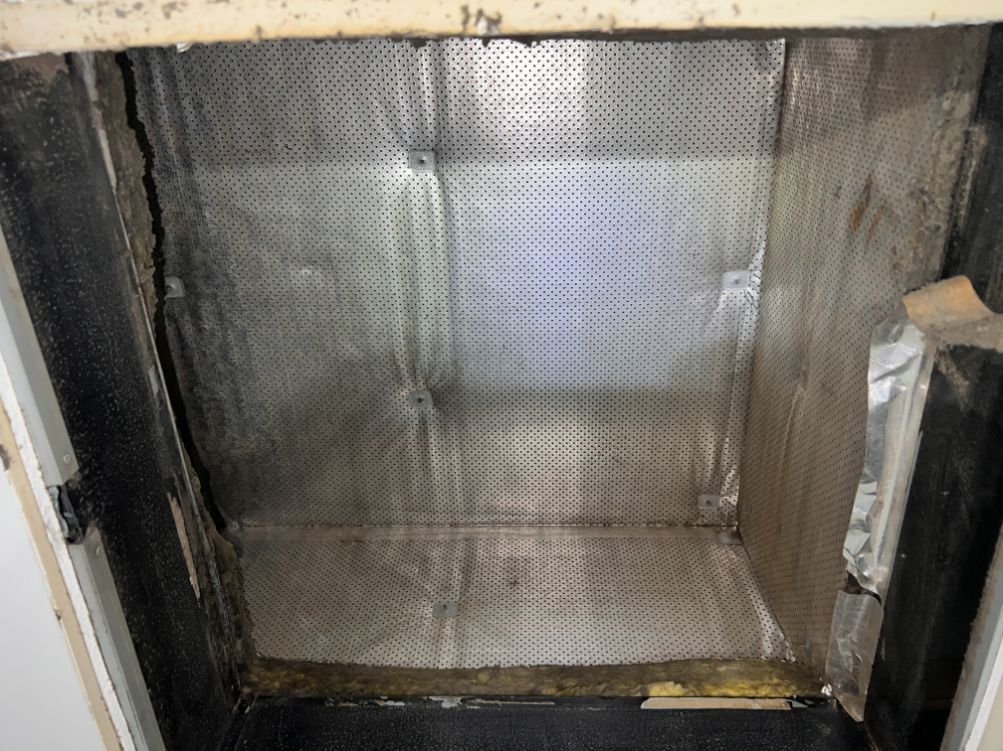
Case Study: Restoring Air Quality & Energy Efficiency in a Gold Coast Office Building
A multi-storey commercial office building on the Gold Coast was experiencing ongoing air quality issues, rising humidity levels, and an increase in staff allergies. The facilities manager had received repeated complaints from tenants, prompting a search for a professional HVAC cleaning provider capable of investigating and resolving the problem quickly and efficiently.
Client Overview
A multi-storey commercial office building on the Gold Coast was experiencing ongoing air quality issues, rising humidity levels, and an increase in staff allergies. The facilities manager had received repeated complaints from tenants, prompting a search for a professional HVAC cleaning provider capable of investigating and resolving the problem quickly and efficiently.
The Challenge
Before contating Efficient Hygiene Services, the building was facing:
- Persistent musty odours throughout several office levels
- High humidity contributing to discomfort and mould risk
- Reduced airflow causing inconsistent temperatures
- An increase in staff reporting respiratory irritation
- Rising energy costs due to system strain
The facilities team suspected their HVAC system had not been properly cleaned in several years, resulting in heavy contamination across ducts and critical components.
Our Inspection Findings
Using video inspection tools and photographic documentation, Efficient Hygiene Services identified multiple issues:
- Significant dust and debris buildup inside return air ducts
- Localised mould growth in the evaporator coil housing
- Blocked and overflowing drain pans causing moisture pooling
- System components under strain due to restricted airflow
These issues were impacting both air quality and overall HVAC efficiency.
The Results
The improvements were immediate and measurable:
- Airflow increased by more than 30% across serviced levels
- Humidity levels stabilised , reducing the risk of mould recurrence
- Odours were completely eliminated after the sanitisation treatment
- Energy consumption decreased , with the building manager reporting lower monthly power usage
- Staff complaints dropped significantly , with noticeable improvements in comfort and air quality
The facilities manager now includes scheduled HVAC cleaning with Efficient Hygiene Services as part of their regular building maintenance program.
The Solution
Full HVAC Clean Using Our R.O.S.E. Process
Our approach included:
- Ready: System inspection, contamination mapping, and protective containment setup
- Open: Removal of vent covers and establishing negative air pressure
- Scrub: Mechanical agitation, HEPA vacuum extraction, coil cleaning, and moisture removal
- Ensure: Antimicrobial treatment, sanitisation, and post-clean verification
We also cleared drainage issues and provided recommendations for ongoing moisture control.
Key Takeaways
- Professional HVAC cleaning resolves air quality issues that standard maintenance cannot address
- Commercial buildings benefit from staged, after-hours cleaning to minimise disruption
- Clean systems perform better, last longer, and cost less to operate
- Regular cleaning prevents dust, mould, humidity issues, and staff discomfort
Some Of The Organisations We’ve Worked With































Areas We Service
At Efficient Hygiene Services, we provide professional HVAC cleaning across South East Queensland and Sydney, delivering reliable support for homes, businesses, and commercial facilities in metro, regional, and coastal areas.
Service areas include:
- Brisbane
- Sunshine Coast
- Gold Coast
- Sydney
- Newcastle
- Hervey Bay
- Mackay
- Rockhampton
- Townsville
- Cairns
Conclusion and Next Steps
Professional HVAC cleaning is one of the most effective ways to restore system efficiency, reduce operating costs, and protect indoor air quality. Clean systems last longer, perform better, and create healthier living and working environments.
To move forward:
- Contact Efficient Hygiene Services for an assessment and quote
- Book your cleaning at a convenient time
- Follow the recommended maintenance schedule for long-term results
Related Services:
Additional Resources
Efficient Hygiene Services follows NADCA guidelines and complies with all relevant Australian safety and hygiene standards. Their team provides maintenance schedules, hygiene checklists, and ongoing support to help you keep your HVAC system clean between service.
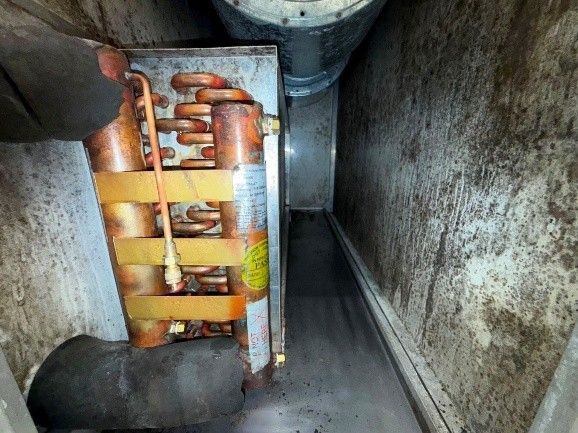

Our Real Customer Reviews
We had our exhaust cleaned by Efficient Hygiene Services, and the experience was absolutely fantastic from start to finish. The team was professional, polite, and incredibly thorough. They arrived on time, explained everything clearly, and left the area spotless. It’s so refreshing to deal with a company that takes real pride in their work. Great clean service — we’ll definitely be using EHS again and highly recommend them to anyone looking for quality and professionalism!
We have been working with Efficient Hygiene Services for years in both our locations for cleaning our exhaust systems. Very professional service, good workmanship which is quite rare these days. They are always on time, prices are reasonable and we always receive photos of before and after. Highly recommended EHS.
The 2 technicians that completed the air conditioning deep cleans at my child care centre were outstanding. We have had many other companies complete our air con cleaning but none are as good as Efficient Hygiene Services.! We won’t trust anyone else. Our air cons are running more efficient and smell amazing.
Our retail business has been using Efficient Hygiene Services for 5 years. The service and quality of work is always outstanding. I highly recommend using their services. If you own a restaurant wanting your exhaust duct cleaned regularly or if you have air conditioning ducts that need cleaning for better air quality.
HVAC Cleaning FAQs for Businesses, Government and Homeowners
What is professional HVAC cleaning and why do I need it?
HVAC cleaning removes dust, mould, debris and contaminants from your system to improve airflow and indoor air quality. Efficient Hygiene Services helps homeowners, businesses and government across Australia keep their systems running efficiently and safely.
How often should HVAC systems be cleaned in Australia?
Most Australian properties benefit from HVAC cleaning every 12-24 months, especially in humid or dusty environments. Efficient Hygiene Services can assess your system and recommend a tailored maintenance schedule.
Does HVAC cleaning improve airflow and cooling performance?
Yes, removing blockages and built-up contaminants helps your HVAC system push air more efficiently. This results in better cooling performance and lower energy usage.
Is HVAC cleaning worth it for energy savings?
Clean HVAC systems run more efficiently and often reduce electricity use by up to 10-20%. Efficient Hygiene Services helps maximise system efficiency for both homes and commercial sites.
Can dirty HVAC ducts make you sick?
Yes, dust, mould spores and bacteria circulating through dirty HVAC systems can trigger allergies, asthma and respiratory irritation. Regular cleaning helps maintain healthier indoor air quality.
Does HVAC cleaning help with mould removal?
HVAC cleaning helps remove mould growth inside ducts and system components, reducing airborne spores. Efficient Hygiene Services uses specialised equipment to safely extract contamination.
Is HVAC cleaning important for people with allergies?
Absolutely, cleaning removes allergens like dust, pollen and pet dander that collect inside the system. Many Australian households notice instant improvements in comfort and air freshness.
Do you provide HVAC cleaning for commercial buildings in Australia?
Yes, Efficient Hygiene Services provides HVAC cleaning for offices, retail stores, warehouses and industrial facilities nationwide. We ensure compliance with Australian Standards and workplace air-quality expectations.
Do you service government or council facilities?
Yes, we provide HVAC cleaning for government agencies, schools and public buildings across Australia. Our team is fully compliant with safety, security and tender requirements.
Can HVAC cleaning reduce commercial downtime?
Yes, clean systems run more reliably and help prevent breakdowns. Efficient Hygiene Services schedules work around your trading hours to minimise disruption.
Does HVAC cleaning meet Australian Standards?
Yes, cleaning follows AS/NZS 3666 for air-handling and hygiene standards. Efficient Hygiene Services ensures all work meets national compliance requirements.
What signs indicate my HVAC system needs cleaning?
Common signs include musty smells, reduced airflow, visible dust around vents, hot or cold spots, and higher electricity bills. A quick inspection can confirm the issue.
Do you clean both ducted and split system HVAC units?
Yes, Efficient Hygiene Services cleans ducted systems, rooftop units, cassette systems, split systems and commercial HVAC equipment across Australia.
Can HVAC cleaning help prevent system breakdowns?
Yes, removing debris and improving airflow reduces strain on motors and components. This can extend the lifespan of your system.
What affects the cost of HVAC cleaning?
Costs depend on equipment size, contamination, accessibility, the number of vents, and whether mould treatment is required. Efficient Hygiene Services provides upfront quotes with no surprises.
Is HVAC cleaning tax-deductible for businesses?
Yes, HVAC cleaning for commercial premises is usually tax-deductible as part of maintenance expenses. Always check with your accountant for confirmation.
Is HVAC cleaning noisy?
There is some low-level vacuum and machinery noise, but it won't disrupt your home or business. Efficient Hygiene Services works quietly and safely.
Do I need to be home during HVAC cleaning?
You don't have to be home, but many homeowners prefer to be present. Commercial clients often give us building access during scheduled maintenance windows.
What should I do to prepare for HVAC cleaning?
Just clear access around vents, return air grilles and indoor units. Efficient Hygiene Services takes care of the rest, including setup and protective coverings.
Do you offer after-hours HVAC cleaning?
Yes, we provide after-hours and weekend HVAC cleaning for businesses and government facilities to avoid disruption.
Do you clean HVAC systems in apartments and units?
Yes, we provide HVAC cleaning for units, apartments and townhouses across Australia. We work with body corporates and strata managers.
Does HVAC cleaning help in coastal or humid locations?
Absolutely, coastal and humid climates increase dust, moisture and mould growth. Regular cleaning is especially important in areas like QLD, NSW and Northern Australia.
Do you offer HVAC cleaning for rental properties?
Yes, Efficient Hygiene Services works with landlords, tenants and property managers to provide HVAC cleaning before new leases or routine inspections.
Is HVAC cleaning safe for pets and kids?
Yes, the process is low-impact and uses safe equipment that won't affect pets or children. We also ensure your home is left clean and tidy.
Do you use chemical-free cleaning options?
Yes, we offer chemical-free and low-toxicity options depending on your HVAC system's condition. This is ideal for homes, schools and medical spaces.
Will HVAC cleaning leave a mess?
No. Efficient Hygiene Services uses sealed extraction systems and protective coverings to ensure your property is left spotless.
Why does my HVAC system smell musty?
Musty odours usually come from mould or moisture build-up inside ducts or coils. A professional clean removes the source and restores fresh airflow.
Why is my HVAC system noisy?
Noise often comes from dust build-up, clogged filters or blocked airflow. Cleaning helps restore smoother, quieter operation.
Does HVAC cleaning extend the lifespan of my system?
Yes, removing strain from motors and components helps reduce breakdowns and extends equipment lifespan.
Can HVAC cleaning fix hot and cold spots in my home?
Yes, clearing blockages improves airflow balance and comfort across all rooms. Efficient Hygiene Services can diagnose system-wide airflow issues.
How long do HVAC cleaning results last?
Most properties enjoy 12-24 months of improved air quality and performance depending on usage and environment.
Should I replace my HVAC filter after cleaning?
Yes, replacing filters after a clean helps maintain optimal airflow and air quality. We can recommend the right filter for your system.
Do you provide maintenance reminders?
Yes, Efficient Hygiene Services offers scheduled reminder services for annual or biennial HVAC maintenance.
